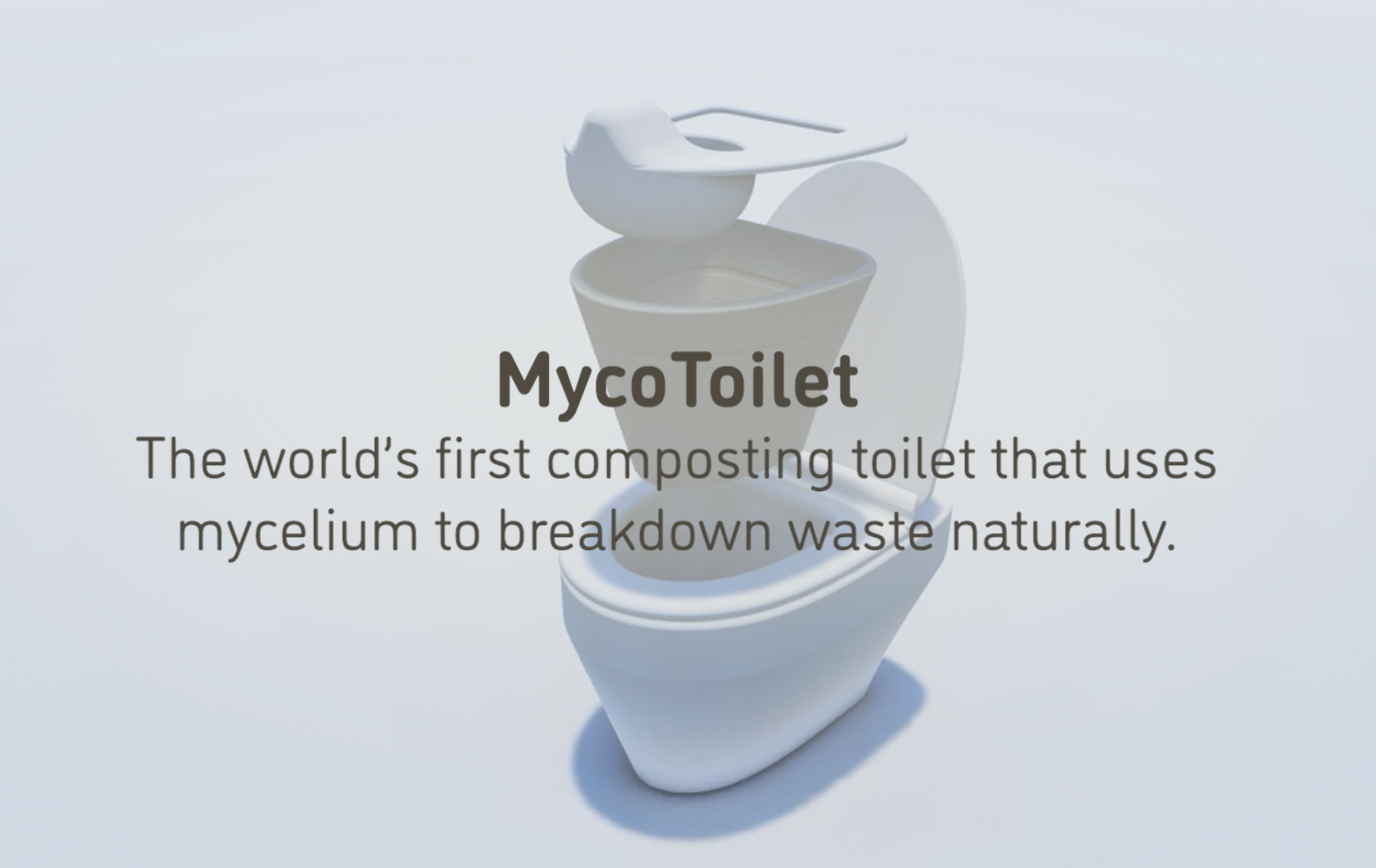MycoToilet
Introducing the world’s first composting toilet using living mycelium to convert human waste to valuable soil.
MycoToilet aims to significantly reduce the amount of time required to convert human waste to non-pathogenic soil products in composting toilets. We have developed a fully biodegradable mycelium biocomposite insert for an industry-leading waste-separating composting toilet. The natural thermal resistance of the mycelium insert provides an optimized environment in which engineered microbial communities of thermophilic bacteria decompose harmful pathogens in solid human waste efficiently and effectively. At the end of use, the biodegradable liner is removed from the toilet and placed in the ground, where decomposition occurs naturally.
2.3B people lack access to sanitation globally
Untreated human waste is a leading cause of disease and mortality among the 2.3B people who lack access to adequate sanitation globally. Current centralized approaches to waste treatment are energy intensive and require significant amounts of water. Toilet flushing requires approximately 30% of water used by Canadian households. Wastewater treatment plants account for 3% of global energy demand and account for 56% of GHG emissions by the water industry. Decentralized approaches such as chemical toilets reduce energy and water use, but require toxic chemicals which create economic, operational, and disposal challenges.
The energy, infrastructure and resource requirements of both conventional centralized and decentralized approaches often exceed the capacity of rural and developing communities. In contrast, we have developed a fully biodegradable insert for composting toilets that speeds decomposition of waste and eliminates the need for energy and chemical inputs.
Integrating research on mixed microbial communities and mycelium biocomposites
The insert increases the efficiency and efficacy of aerobic microbial processes that convert human waste to non-pathogenic soil products. The approach applies innovative research on mixed microbial communities of thermophilic bacteria and advanced mycelium biocomposites. The novel design configuration utilizes the natural thermal resistance of mycelium to create an optimal environment in which engineered microbial communities of thermophilic bacteria decompose harmful pathogens in solid human waste in half the time of conventional composting toilets.
At the end of use, the biodegradable liner is removed from the toilet and placed in the ground, where decomposition occurs naturally. The innovative has the potential to revolutionize distributed point-source waste treatment. The design for MycoToilet won the BioDesign Challenge, an international competition with entrants from over 300 universities, in 2018.
Project Team
Project Leads
Prof. Joseph Dahmen
Dr. Steven Hallam
Research Assistants
Isobel McLean
Lorena Polovina
Juan Santana
Collaborators
Hallam Lab, UBC Dept. of Immunology and Microbiology
Chris Moraes (McGill University)
Sponsors
Campus as a Living Lab Grant
UBC SEEDS Sustainability
Materials Manufacturing and Research Institute
BioProducts Institute
Awards
Biodesign Challenge, Overall Winner
Detail of mycelium receptacle which breaks down solid waste
Closeup of Plurotus Ostreatus innoculation
Collection of liquid ink and hydrogels inoculated with mycelium spores







